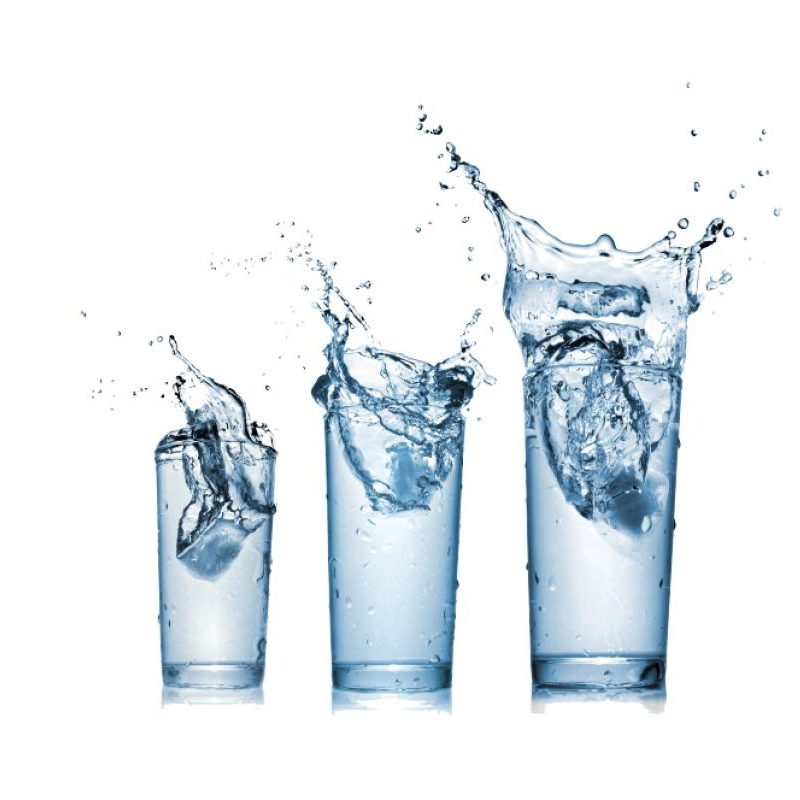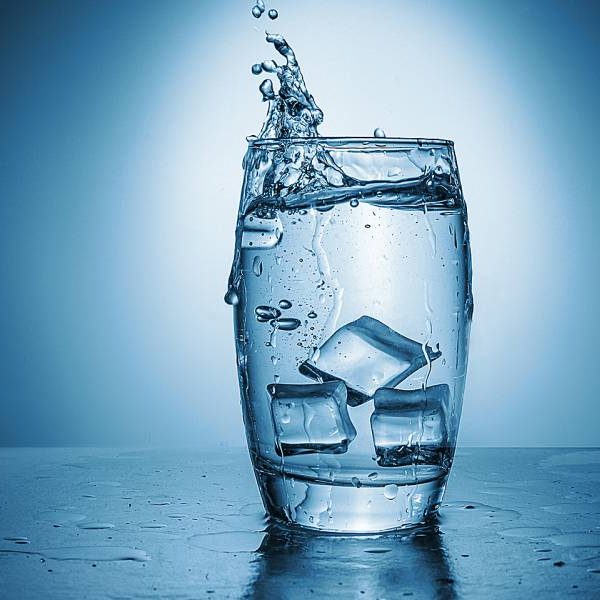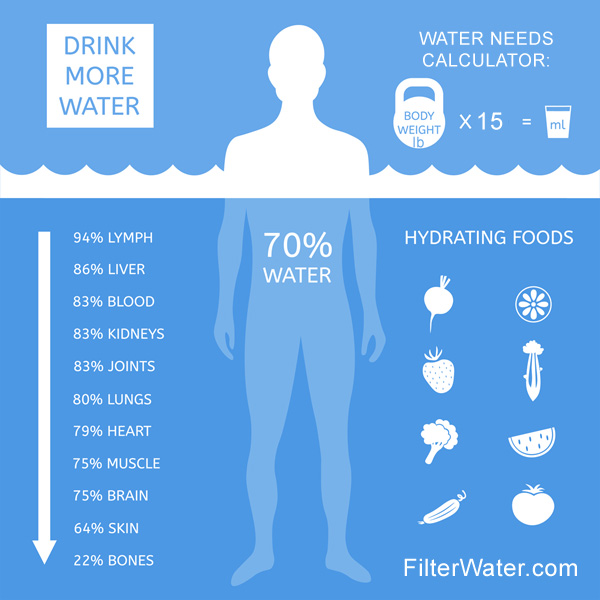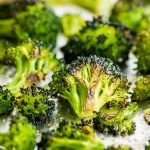Introduction: The Importance of Hydration
Water is an essential component of human life, playing a critical role in numerous bodily functions. From regulating temperature to aiding digestion, the importance of adequate hydration cannot be overstated. However, many people are unsure about how much water they should drink daily. The commonly quoted “eight glasses a day” is a popular guideline, but does it hold up? In this comprehensive guide, we’ll explore the science behind hydration, factors that influence water needs, and expert recommendations for daily water intake.
Understanding how much water you need is crucial for maintaining optimal health. Insufficient hydration can lead to dehydration, which may cause fatigue, headaches, and various health issues. By establishing a clear understanding of your daily water needs, you can enhance your well-being and overall quality of life.
Recommended Daily Water Intake
General Guidelines for Water Consumption
The National Academies of Sciences, Engineering, and Medicine provides general recommendations for daily water intake. They suggest that men should aim for about 3.7 liters (or roughly 13 cups) of total water intake each day, while women should target approximately 2.7 liters (or about 9 cups). This includes water obtained from all beverages and food.
It’s important to note that these are general guidelines, and individual needs may vary based on several factors. The total daily water intake considers all sources of water, including beverages and foods high in water content, such as fruits and vegetables. By incorporating both hydration sources, you may discover that meeting your daily water goals is more attainable than it seems.

The Role of Activity Level
One of the significant factors influencing daily water intake is activity level. Individuals engaged in regular physical activity—such as athletes or those with physically demanding jobs—typically require more water to compensate for fluid loss through sweat. The American Council on Exercise suggests that active individuals should drink an additional 16–32 ounces of water for every hour of exercise.
During hot weather or intense workouts, it’s essential to listen to your body’s signals for hydration. Thirst is a natural indicator that your body needs more water, but relying solely on thirst may not be enough. As you increase your activity level, aim to develop a hydration strategy that ensures you’re adequately replenishing fluids lost during exertion.
Factors Influencing Hydration Needs
Climate and Environment
The climate and environment in which you live can greatly affect your hydration needs. In hot and humid conditions, your body loses more fluids through sweat, necessitating increased water intake. Similarly, at high altitudes, you may experience dehydration due to lower humidity levels and increased respiration rates.
People living in dry climates or areas with extreme temperatures should be particularly vigilant about hydration. Seasonal variations, such as summer heat waves or winter dryness, can also impact overall fluid requirements. During these conditions, consider adjusting your daily intake to accommodate your environment and maintain optimal hydration levels.
Age and Gender Considerations
Age and gender are two additional factors that can influence daily water requirements. For instance, infants require a specific amount of fluid relative to their body weight, while older adults often experience reduced thirst sensations, making it crucial for them to consciously prioritize hydration.
Gender differences also play a role; men generally have higher daily water needs than women due to larger body mass and muscle percentage. While the general recommendations from health organizations offer a starting point, individual ages, health conditions, and life stages should be considered when determining your ideal water intake.

Signs of Dehydration
Recognizing the Symptoms
Awareness of dehydration symptoms is essential for managing your water intake effectively. Common signs include thirst, dry mouth, fatigue, reduced urine output, and dark-colored urine. Minor symptoms may manifest as headaches, dizziness, or confusion, particularly in hotter weather or during intense physical activity.
By recognizing these warning signs early, you can take action to restore your hydration levels before more severe complications arise. For instance, if you notice that you’re feeling lethargic or have dry skin, these could be signals that you need to increase your water intake. It’s essential to prioritize your well-being by remaining attuned to your body’s hydration needs.
The Water-Rich Diet
Incorporating water-rich foods into your diet is an effective and delicious strategy for staying hydrated. Foods with high water content not only provide essential hydration but are also lower in calories, making them excellent choices for those looking to maintain or lose weight. For instance, fruits like watermelon, which consists of about 92% water, are not only hydrating but also packed with antioxidants, vitamins A and C, and lycopene, which is beneficial for heart health.
Vegetables such as cucumbers, which are approximately 95% water, boast an impressive nutrient profile that includes fiber and various vitamins. Similarly, leafy greens like lettuce and spinach provide hydration while delivering vital nutrients such as iron, calcium, and several B vitamins. Additionally, incorporating a variety of these foods can enhance your meal’s texture and flavor, making healthy eating enjoyable and satisfying.
Creating a balanced meal plan that incorporates these hydrating foods can enrich your nutritional intake and enhance your overall fluid consumption. Adding slices of fruits and vegetables to your meals can create a colorful and appetizing dish. By relying on both water-rich foods and beverages, you can effectively support your body’s hydration needs while enjoying a diverse and nutritious diet.

Tips for Maintaining Proper Hydration
Create a Hydration Schedule
Establishing a hydration routine can simplify the process of maintaining proper fluid intake. Consider setting specific goals, such as drinking a certain number of glasses by mid-morning and another set by lunch. Using a water bottle with measurement markers can provide visual cues to remind you to drink throughout the day.
Additionally, consider pairing your water intake with certain activities. For example, drink a glass of water before each meal or after each bathroom break to encourage consistent hydration. By being proactive about your hydration, you’ll be less likely to fall short of your daily needs.
Incorporate Flavor
If you struggle to drink enough water due to boredom or taste preferences, consider adding natural flavor enhancers. Fresh fruits, herbs, or vegetables can easily transform plain water into a refreshing beverage. Popular options include lemon, mint, cucumber, or berries, which not only boost flavor but also have added health benefits.
Infused water can be particularly enjoyable, and you can experiment with different combinations to find those that appeal to you. By making hydration more enjoyable, you’re more likely to stick to your daily water intake goals.
Conclusion: Finding Your Optimal Hydration Level
In conclusion, determining how much water you should drink daily is not a one-size-fits-all approach. Various factors, including activity level, climate, age, and gender, all contribute to individual hydration needs. The general guidelines provided by health authorities serve as a useful starting point, but personal adjustments will enhance your daily intake based on your unique lifestyle and preferences.
Recognizing the signs of dehydration, incorporating water-rich foods into your diet, and creating enjoyable hydration habits can significantly contribute to your overall well-being. As you prioritize your hydration needs, you’ll experience improved energy levels, better physical performance, and enhanced cognitive function—factors that affect every aspect of your life.
By making a conscious effort to stay hydrated, you’re investing in your health and enabling your body to function optimally. Remember to listen to your body, adapt your water intake with the changing seasons, and enjoy the refreshing benefits of proper hydration. Begin your hydration journey today and experience the positive impact it can have on your life!


